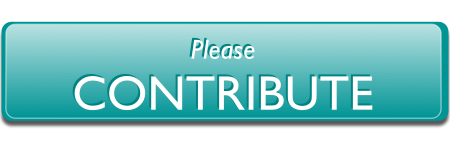
| Published: | 2017-Jan-18 |
| Last Updated: | 2017-Jun-20 |
| Principal Writer: | Barry Shatzman |
 | Understanding The Issue |
 | Issue Status |
 | Analysis and Perspectives |
 | What You Can Do |
 | The Rumor Mill |
Corporate Behavior
Environment: Policy
Gov: The Ways of Congress
ALERT Act
2017 (HR-75)
Regulatory Accountability Act2017 (HR-5)
REINS Act2017 (HR-26)
Midnight Rules Relief Act2017 (HR-21)
Financial CHOICE Act2017 (HR-10)
DID YOU JUST LEARN SOMETHING?
Is it worth a dollar?
News in FiVe is free to read, but it takes time and money to publish.
If you find what we do valuable, please help us continue with a small donation every so often. Even a dollar or three makes a difference.
In return, we'll keep providing you the most relevant, understandable, and accessible news and information.
It's secure and takes only about a minute.
Thanks!
New laws would put protections under attack
Within its first few days of being in session, the 2017-2018 Republicans in the House of Representatives have passed or proposed bills that could end regulations on things such as air quality, food and workplace safety, and consumer protections.
One would require explicit Congressional approval for every major regulation issued by an agency such as...
o The Food and Drug Administration (FDA)
o The Securities and Exchange Commission (SEC)
o The Consumer Product Safety Commission
o The Consumer Financial Protection Bureau (CFPB)
It also would allow Congress to nullify any rule issued in the previous 10 years.
One would allow multiple rules to be nullified at once - rather than one at a time.
Another would require agencies to fully analyze the costs of several (including unlikely) alternatives and choose the one that would cost industries the least - even if it provides an inadequate solution.
And one would delay the implementation of any new rule by 6 months.
Then came the Financial CHOICE Act
In June 2017, the House passed the Financial CHOICE Act. It not only would repeal regulations that were enacted to prevent a financial crisis similar to the one that occurred in 2008, but it also reintroduced versions of the bills mentioned above - that had stalled in the Senate due to a filibuster by Senate Democrats.
Why do we need regulations?
It's a legitimate interest of businesses to earn as much profit as they can. But sometimes, the practices they use can cause substantial harm to citizens or other companies.
A few examples include...
o A bank can recklessly invest its funds, causing you to lose your savings.
o A factory can spew pollutants into the air, adding to global warming.
Regulations are one way the government protects Americans from harmful practices such as these, by setting rules companies must follow.
Some of what regulations do...
These are just a few of the regulations federal agencies issued during the Obama administration...
o The 2016 Stream Protection Rule requires coal mining companies to avoid practices that would permanently destroy sources of drinking water.
o The 2011 Cross-State Air Pollution Rule requires certain states to reduce power plant emissions that cross state lines and add to smog in downwind states.
o In 2016 the Consumer Financial Protection Bureau (CFPB) proposed a rule to protect people who use payday loans from falling into an endless cycle of debt..
o In 2015, the Food and Drug Administration banned dangerous trans fats from all foods.
14 Obama administration regulations already were revoked
Even if these bills to allow allow regulations to be easily revoked do not become law, Congress has revoked several regulations that were finalized late in the Obama administration. The capability to revoke new regulations (without being subject to a Senate filibuster) exists under the 1996 Congressional Review Act.
Regulations revoked include...
o A rule that would require drilling and mining companies to disclose payments to foreign governments. (Revocation signed into law Feb. 14, 2017)
o A rule that would keep mentally unstable Social Security recipients from buying a gun.(Revocation signed into law Feb. 28, 2017)
o A rule that would have prevented internet service providers from sharing personal information(Revocation signed into law Feb. 28, 2017)
o The Fair Pay and Safe Workplaces Rule, which would have required government contractors to disclose violations of wage, safety, and environmental laws.(Revocation signed into law Mar. 27, 2017)
o A rule that limited drug testing of unemployment compensation applicants to those in occupations that regularly test for drugs .(Revocation signed into law Mar. 31, 2017)
o A rule that would have prevented states from trying to withhold funds from Planned Parenthood simply because they offer abortion services.(Revocation signed into law Apr. 13, 2017)
An attempt to revoke one regulation, the Methane Reduction Rule, failed by a single Senate vote.
Others were proposed to be revoked, such as revoking protections for users of prepaid cards and a requirement that industrial facilities better protect against catastrophic explosions. However, the resolutions to revoke them did not pass the House, so they remain in effect.
For more, read the Spokesman-Review story.
Click here to continue to the next section of this issue...



